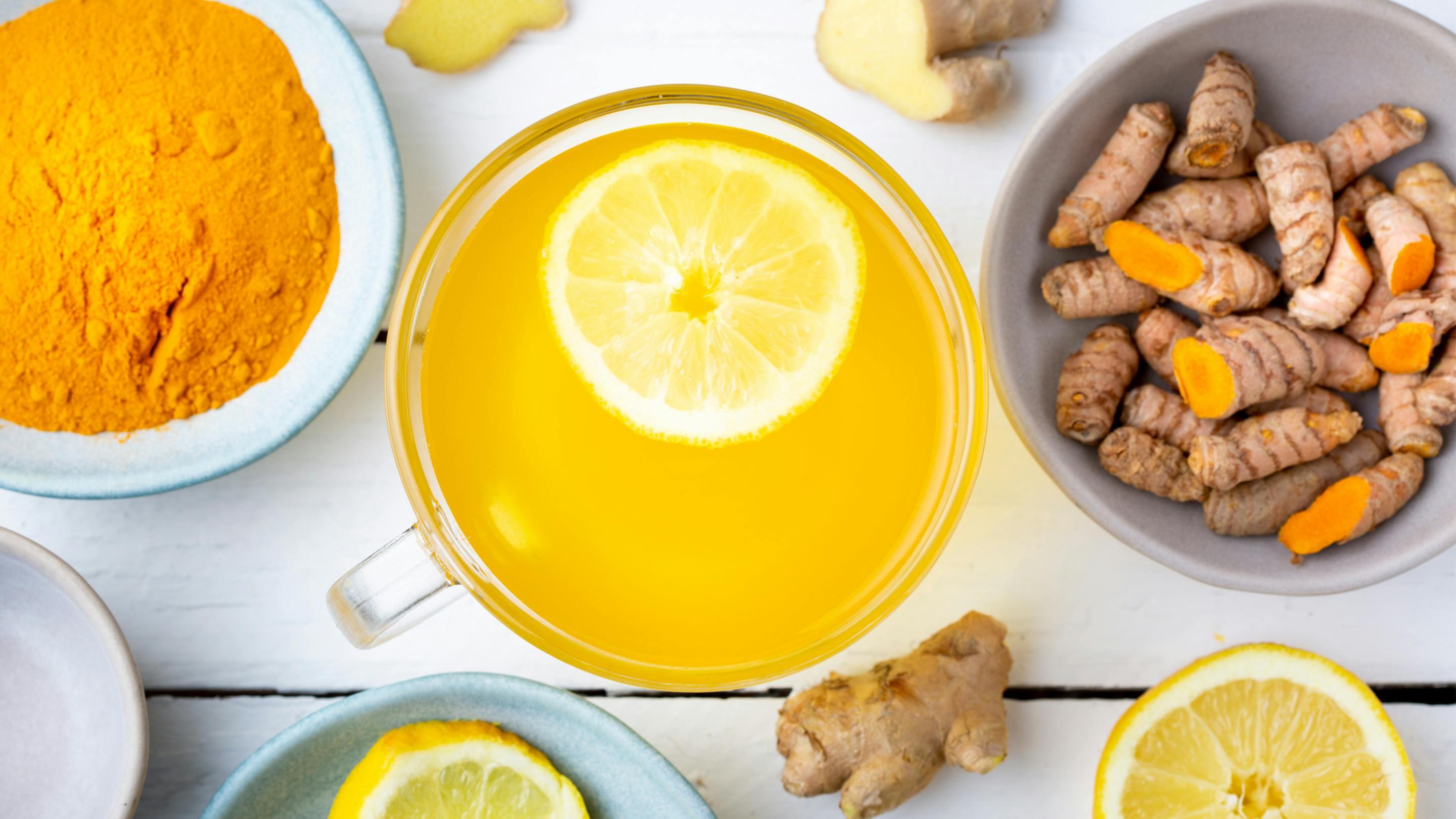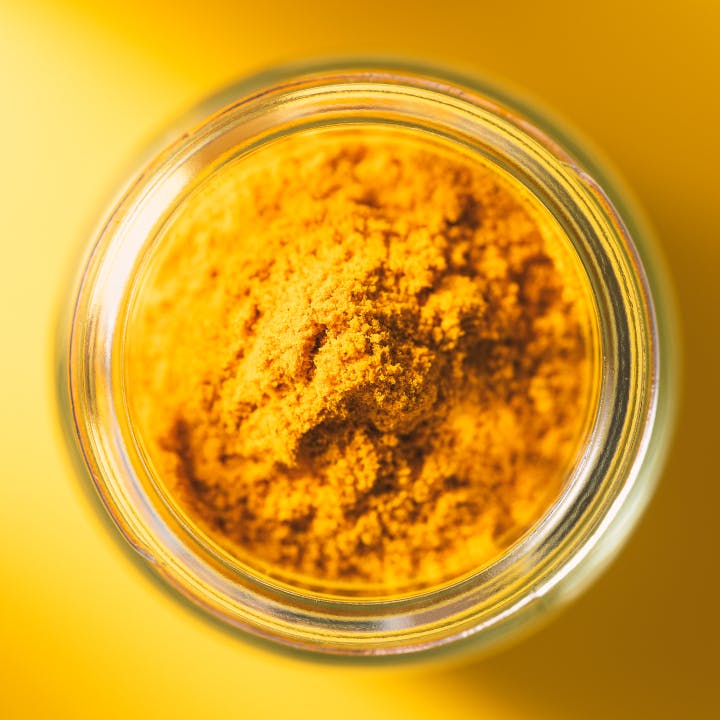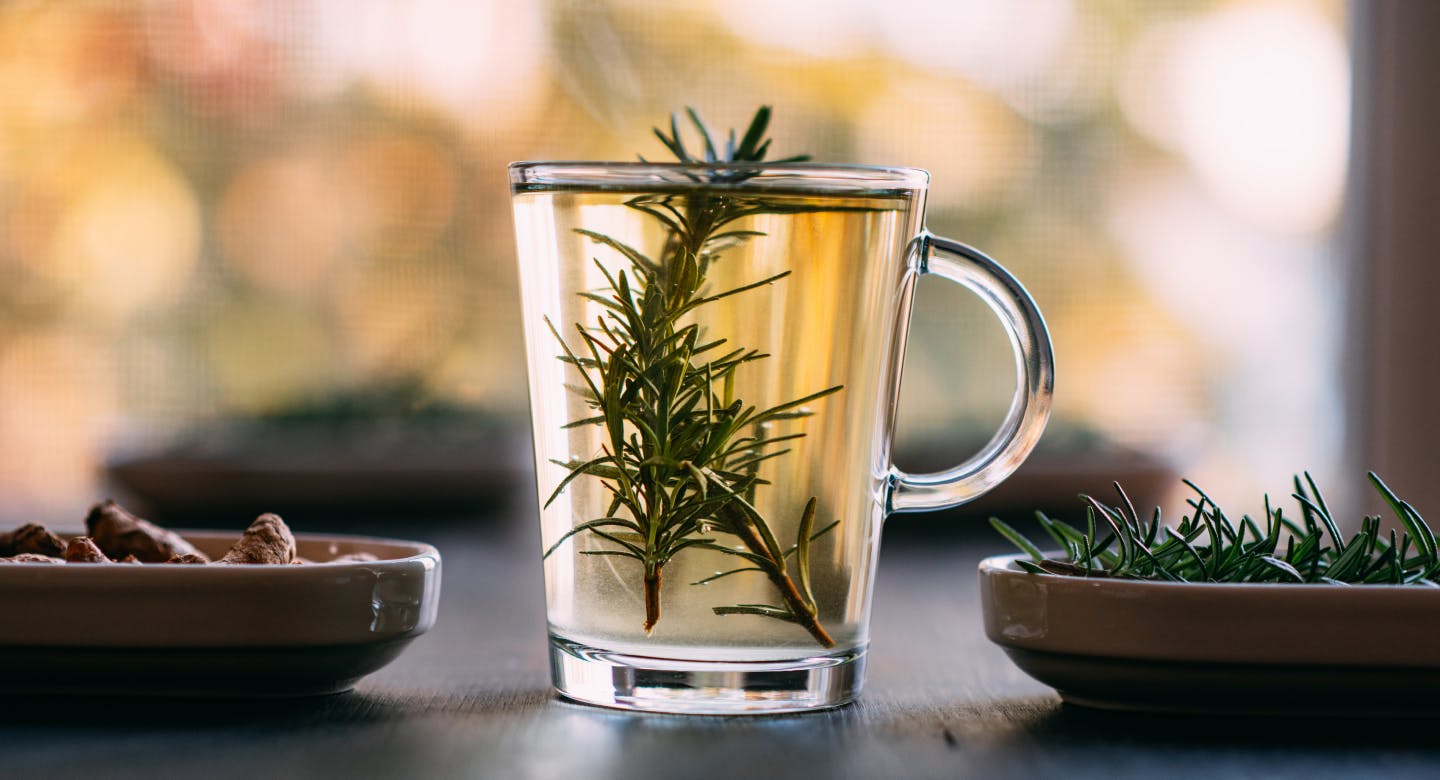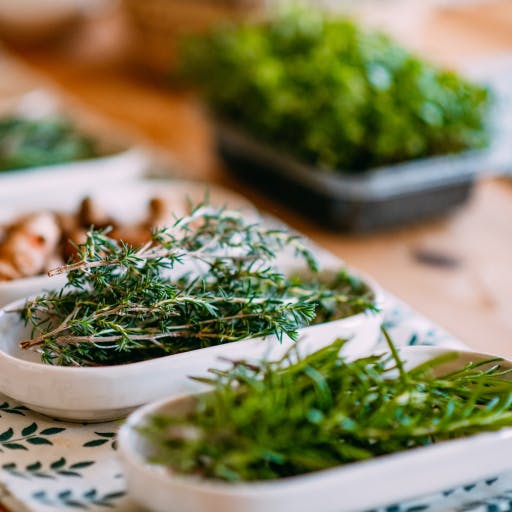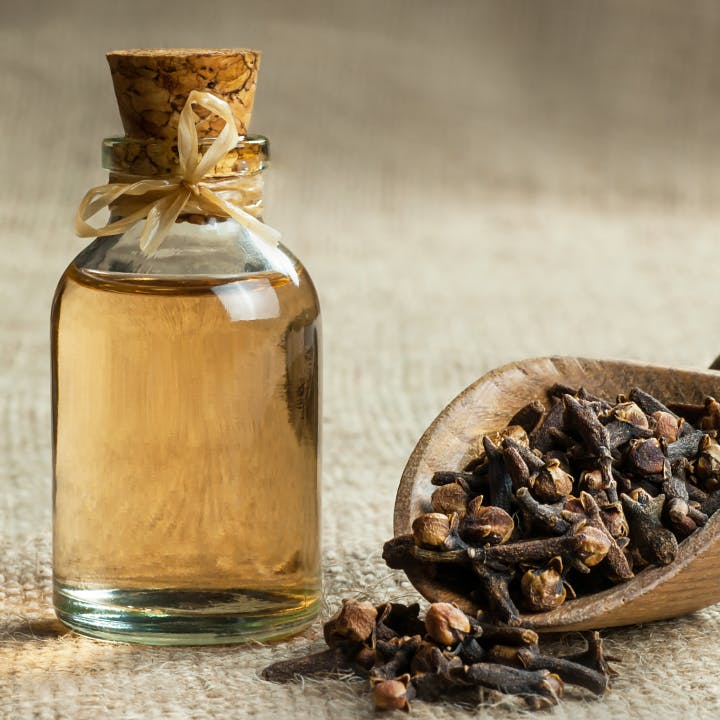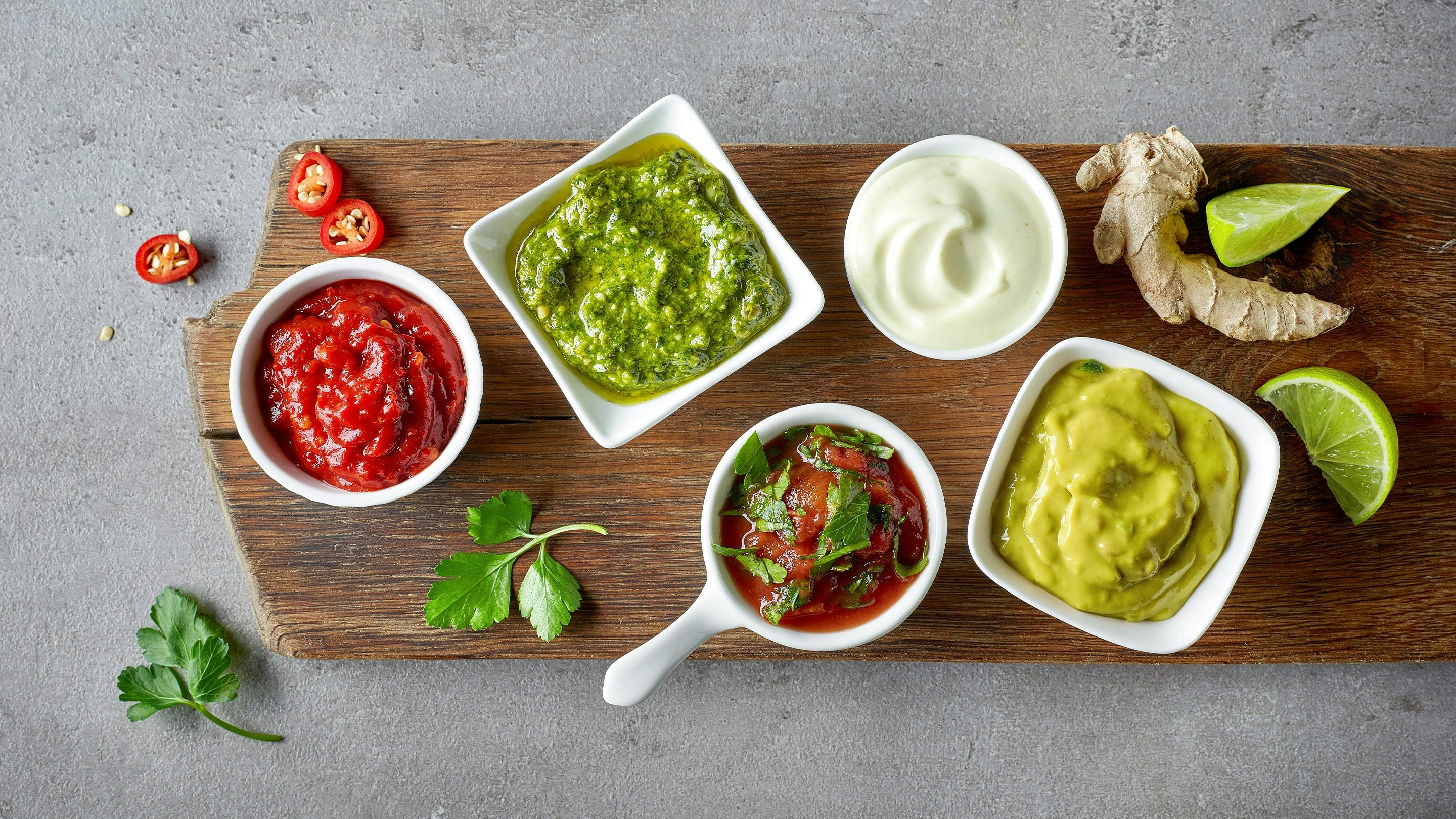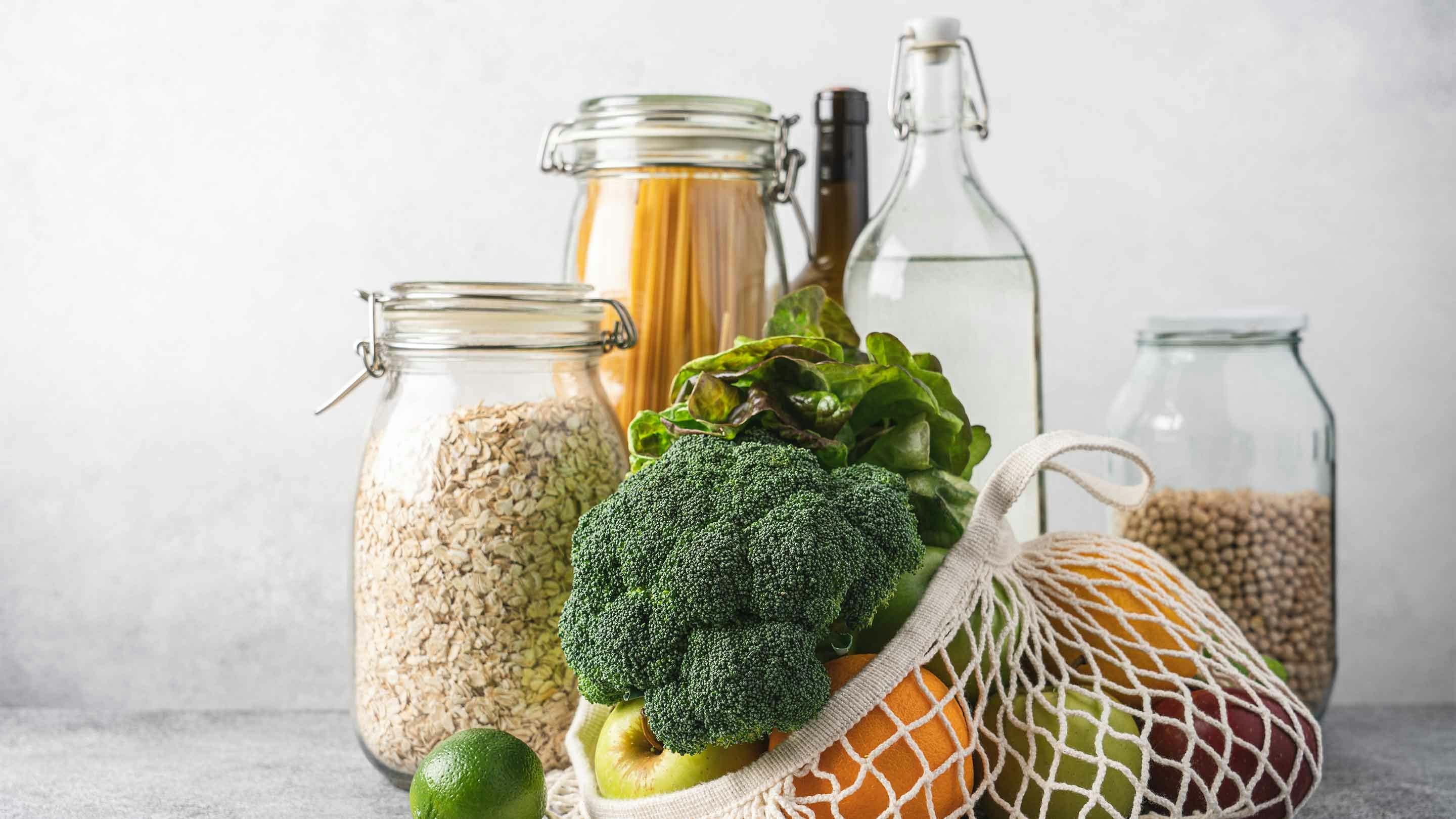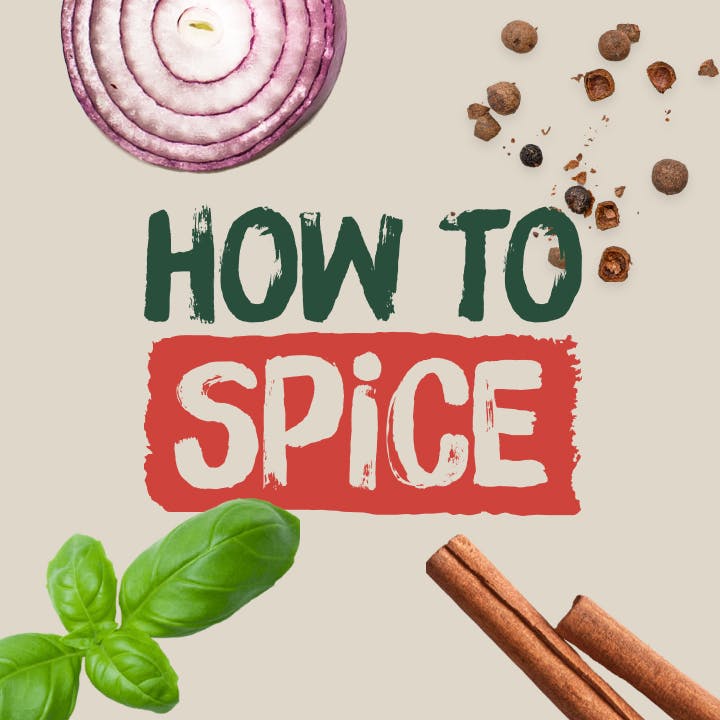
Discover our spice hub
Sometimes you just can't get enough of spices: Learn all about how to elevate your dishes in our new knowledge base!
Spices are not only good for our food, but also for our bodies. For many centuries, people have valued them for their medicinal properties - and we should continue to do so today.
Almost all herbs and spices have a potentially positive effect on our organism. In contrast to common medicines and food supplements, they also taste delicious. We have created a small overview so that you can find out which positive side effects you could benefit from while enjoying them. Nevertheless, you need to know: Herbs and spices can only support you in trying to normalise your body’s functions – we can by no means guarantee an immediate effect.
An interesting fact is the ORAC value of spices (Oxygen Radical Absorbance Capacity), which can be used to measure antioxidant capacity. Antioxidants help reduce cell damage – in other words, make you feel better and fitter. Examples of spices and their approximate ORAC values per 100 grams include cinnamon (131,420), oregano (175,295), turmeric (127,068), cloves (290,283), ginger (148,450) and peppermint (13,978). Spices should not be selected based on their ORAC values alone, as other nutrients are also important.
Here are some particularly revitalising spices:
Turmeric
The spice with the bright golden colour is known for its active ingredient curcumin. In its pure form, it has a slightly bitter taste, which is why it is usually mixed with cumin, cardamom or other spices. The Far Eastern spice has strong anti-inflammatory and antioxidant properties, it could help relieve joint pain and also strengthen the immune system. By the way, it is most effective in combination with black pepper. It is even said to be good for the brain. So, it’s a smart choice!
Rosemary
Rosemary brings a woody, aromatic taste to the plate. At the same time, eating the herb may help to strengthen the internal defences, promote blood circulation and thus improve brain function. You can also try taking rosemary for digestive and stomach problems, either as a spice with food or also infused with hot water.
Ginger
The ginger tuber not only carries an unmistakable spiciness, but also a great potential for your health. This is thanks to the ingredient gingerol, which has strong antioxidant, anti-inflammatory properties. Ginger can also relieve nausea and aid digestion. Add ginger generously to your dishes or chop it up and drink ginger tea – for example with mint and honey. To do this, put about a teaspoon of ginger powder in a tea strainer and pour 250 ml of hot water over it.
Garlic
Another magical bulb: garlic enhances hearty dishes – and also has hearty powers. Literally. Garlic can support the heart and blood pressure, help regulate cholesterol levels and stabilise the body’s immune function. So don’t skimp on garlic, even if you have a date coming up.
Cinnamon
On the one hand, it is the warming sweetness that characterises cinnamon, on the other hand, it can cause a lowering of the blood sugar level in the body. That is why it is very popular with people who are affected by diabetes. Incidentally, Cassia cinnamon is much more effective than Ceylon cinnamon.
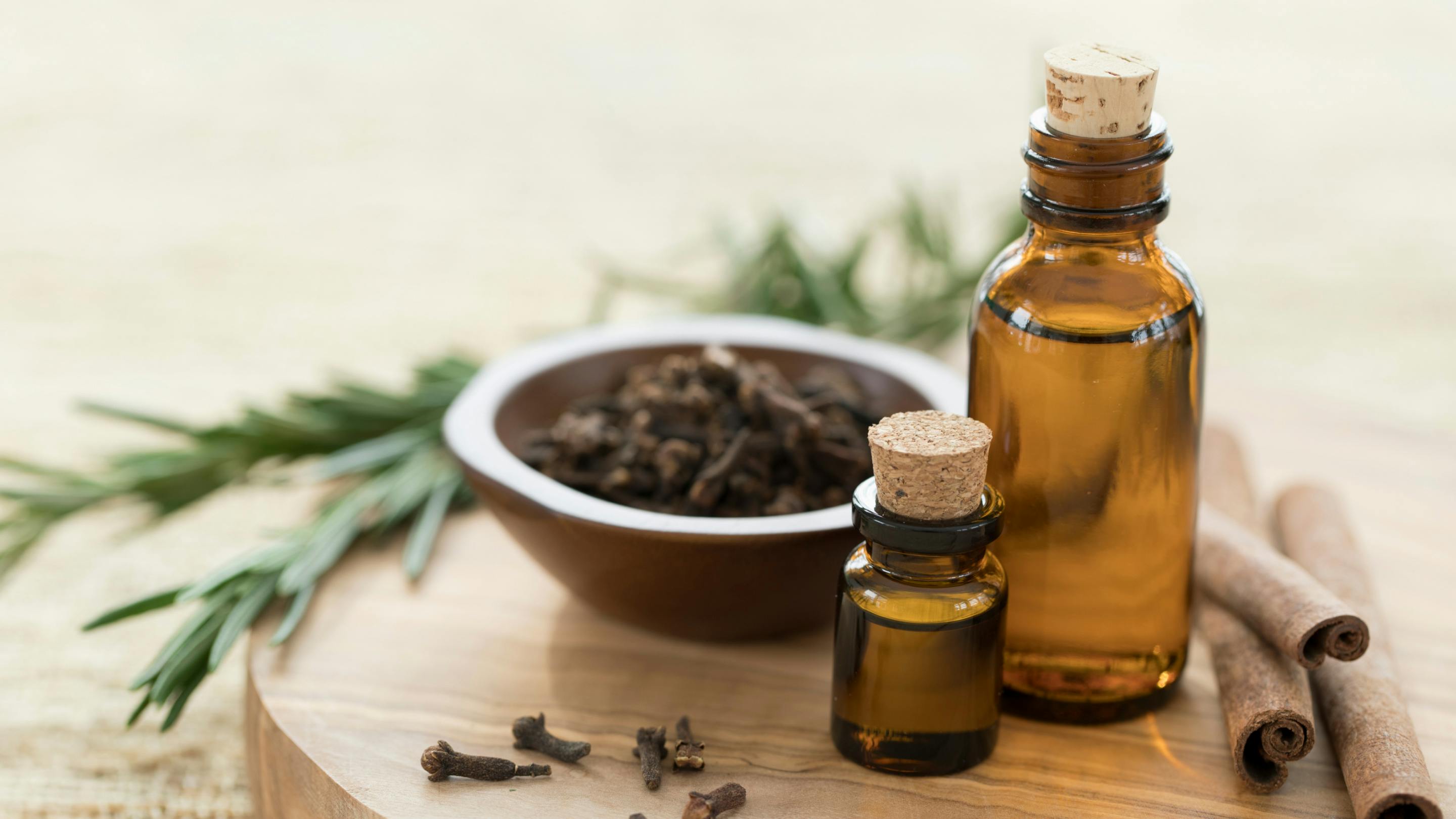
Nutmeg
No spice can compare to the special taste of nutmeg – it enhances creamy desserts as well as mushy dishes like mashed potatoes. At the same time, the nut has a detoxifying effect. It can stimulate the liver to eliminate toxins and the kidneys to rid themselves of harmful substances. But be careful, it always comes down to the dose: You should not overdo it with nutmeg, because too much of it distorts the taste and can have unpleasant side effects such as nausea.
Basil
Basil gives dishes a Mediterranean twist – and has remarkable antioxidant properties. Fresh basil in particular, like many other herbs, has a detoxifying, anti-inflammatory and digestive effect with its essential oils.
Harness the power of spices
It’s not that difficult to utilize the potential of spices – you can easily integrate them into your daily diet: just add some cinnamon to your morning cereal, some turmeric to your soup or curry, basil leaves to your salad or a bit of ginger to your tea. Nevertheless, caution is advised. Because even though spices can offer certain benefits to the body, it is not advisable to take excessive amounts, especially if you are taking medication, or you don’t know how your body will react to it. Anyway, the following always applies: If you are not feeling well, see a doctor and get professional advice on your diet and lifestyle!
Stay healthy and enjoy it!
Spice up the web! Share this article on...
Read more
Currently Viewing: 1 of

